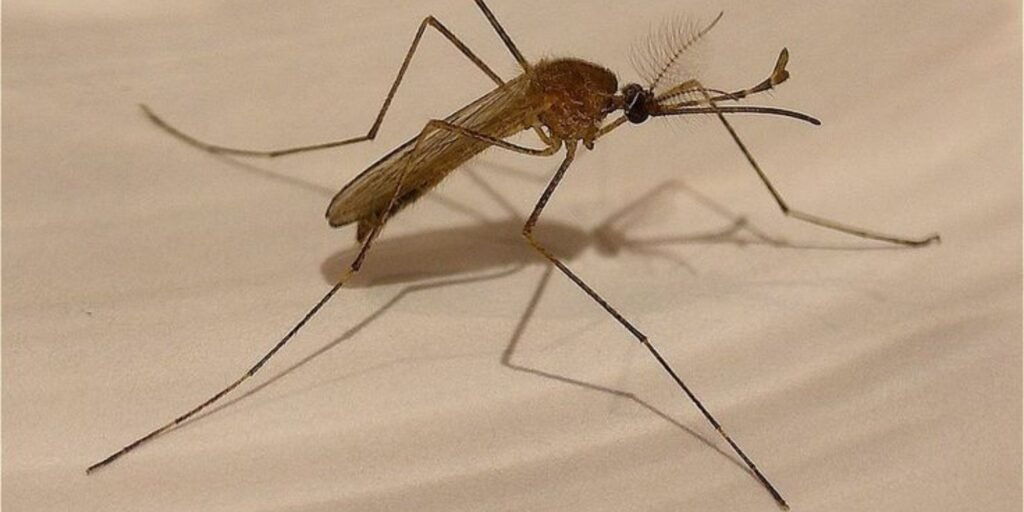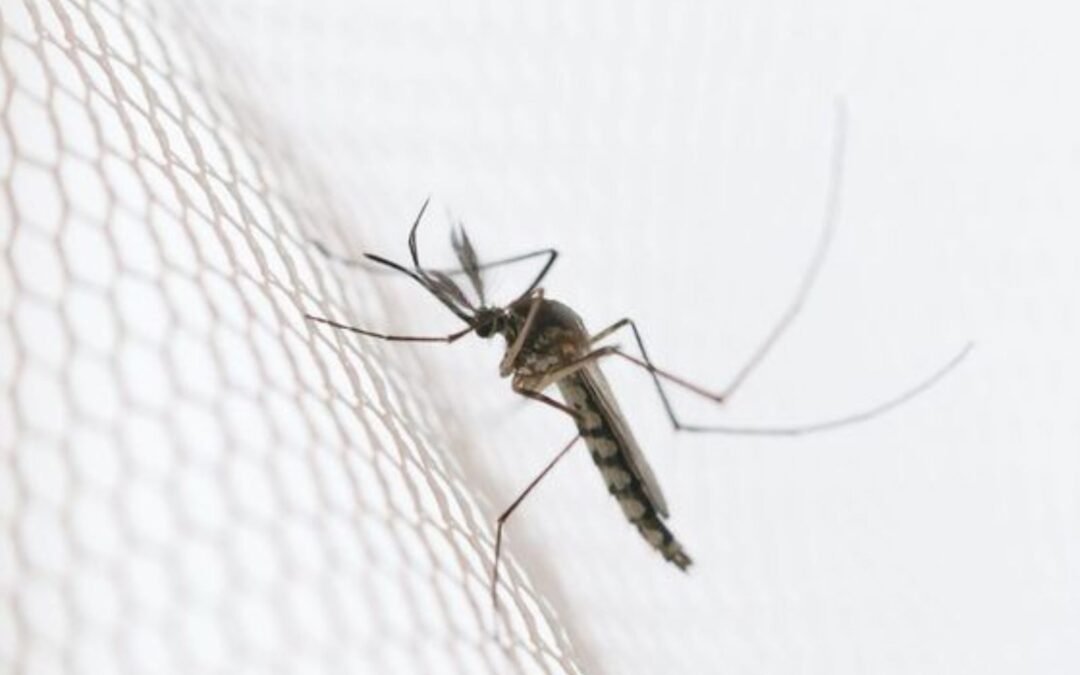Overview
How long do mosquitos live ? Mosquitoes are notorious for ruining outdoor gatherings and spreading harmful diseases—and while they’re rarely welcome sights, their presence raises an intriguing question: how long do mosquitoes live?
This blog explores mosquito lifespans, explaining the factors influencing their longevity, the stages of their life cycle, and what their brief lives mean for the environments they inhabit and the diseases they may transmit. By the end, you’ll have a clearer understanding of these persistent insects and how their lifecycle impacts human health and ecology.
The Average Lifespan of a Mosquito

A mosquito’s lifespan is relatively short, depending on the species, environment, and role in the reproductive cycle. On average:
- Male mosquitoes live about 7–10 days. Their primary role is to mate with females before they die.
- Female mosquitoes can live for several weeks, depending on environmental conditions and access to sustenance, such as blood meals.
Some species, such as Anopheles mosquitoes (the primary carriers of malaria), may survive for up to a month under optimal conditions. However, understanding their lifespan requires examining their life cycle.
The Mosquito Life Cycle in Four Stages
Mosquitoes experience a complete metamorphosis, progressing through four distinct stages:
- Egg Stage
Female mosquitoes lay eggs in or near standing water, necessary for hatching. A single female can lay between 100 and 300 eggs in one batch. These eggs can hatch within 24–48 hours in warm conditions or remain dormant for months if the environment is less favourable (e.g., during dry seasons).
Key takeaway: Eliminating stagnant water around homes can significantly disrupt mosquito populations at this early stage.
- Larva Stage
Once hatched, mosquito larvae—commonly called “wigglers”—spend the next 4–14 days in water. They feed on organic matter like algae while breathing through a specialized tube. Much of their energy is dedicated to rapid growth during this stage.
Larvae are highly sensitive to temperature. Warmer climates accelerate their development, while cooler environments slow it down.
- Pupa Stage
After growing sufficiently, larvae enter the pupa stage, transforming into fully developed mosquitoes. This stage often lasts 1–4 days when the pupa is inactive and non-feeding. At the end of this stage, the adult mosquito emerges.
Understanding this transformation stage is vital for pest control interventions to halt mosquito development before reaching maturity.
- Adult Stage
Once emerge, adult mosquitoes are ready to begin their short but impactful lives. Males and females diverge in their roles:
- Male mosquitoes focus exclusively on mating and feeding on nectar or plant juices for energy.
- Female mosquitoes also consume nectar but require blood meals to produce eggs. This is the stage during which bites occur, and diseases may spread.
Total Lifecycle Duration
Under optimal conditions, the mosquito life cycle—from egg to adult—can take as little as 8–10 days. Cooler or less favourable environments may slow their development, sometimes doubling the timeline.
How long do mosquitos live :Factors Influencing Mosquito Lifespan

Several factors determine how long mosquitoes live. These include:
- Temperature
Mosquitoes thrive in warm, humid climates. Most species are most active between 75°F and 95°F (24°C to 35°C). Cold temperatures slow their metabolism and can either kill mature mosquitoes or halt egg hatching.
- Access to Food
Both male and female mosquitoes consume nectar for energy. However, females also require blood to produce eggs with a sufficient food source, particularly blood, and females’ ability to survive and reproduce increases significantly.
- Predators
Predators like birds, bats, frogs, and fish are natural mosquito regulators. Maturing mosquitoes, especially larvae, are highly vulnerable to predation while developing in water.
- Human Intervention
Introducing insecticides, larvicides, and mosquito traps directly impacts mosquito populations and their lifespan. Additionally, eliminating standing water deprives mosquitoes of critical breeding grounds.
Why the Mosquito’s Short Life Matters
Despite their short lifespan, mosquitoes have a profound impact on both ecosystems and public health. Below are some noteworthy consequences of their brief lifecycle:
Disease Transmission
Female mosquitoes are vectors for numerous diseases, including:
- Malaria (caused by Plasmodium parasites, transmitted by Anopheles mosquitoes)
- Dengue fever (spread by Aedes aegypti)
- Zika virus
- West Nile virus
Their persistent reproductive cycle and feeding behaviour mean disease transmission remains a significant public health risk, even when individual mosquitoes live less than a month.
Role in Ecosystems
Mosquitoes serve as a food source for various predators, supporting ecosystems. Their larvae help recycle organic material in aquatic environments, though their nuisance factor and health implications often overshadow their role.
How long do mosquitos live :How to Reduce Mosquito Lifespans Around Your Home
By taking proactive steps, you can decrease the number of mosquitoes in your surroundings and reduce their health risks.
- Remove Stagnant Water
Mosquitoes lay eggs in standing water. Empty flowerpots, buckets, birdbaths, and gutters to eliminate breeding grounds.
- Install Screens and Nets
Keep mosquitoes out of indoor spaces with window and door screens. Mosquito nets over beds add an extra layer of protection.
- Use Repellents and Traps
Repellents containing DEET, picaridin, or lemon eucalyptus oil effectively deter bites, while traps can capture and kill adult mosquitoes.
- Introduce Natural Predators
Encouraging predators like bats and dragonflies can help control mosquito populations in natural settings.
- Invest in Professional Pest Control
If you live in a high-risk area, professional pest control services can deploy insecticides and other solutions to effectively reduce mosquito populations.
How long do mosquitos live :What Does the Future Hold for Mosquito Control?
Mosquitoes, though small, have a significant impact on global health due to their role in transmitting diseases like malaria, dengue, and Zika virus. Understanding the lifespan of mosquitoes is crucial for developing effective strategies to control their populations and reduce the spread of these diseases. While the typical lifespan of a mosquito varies depending on factors like species and environmental conditions, many mosquitoes live for about two weeks to a month. However, female mosquitoes, which require a blood meal for reproduction, can survive longer, especially if they have access to suitable breeding conditions.
In recent years, research into mosquito biology has yielded promising advancements, particularly in the field of mosquito control. One of the most exciting developments is the use of genetic modifications to reduce mosquito populations. Scientists are exploring techniques like gene editing to create mosquitoes that are sterile or incapable of transmitting diseases. This method aims to curb reproduction, significantly reducing the number of mosquitoes without harming other species in the ecosystem.
Another approach involves the development of environmentally friendly pesticides. Traditional mosquito control methods, such as spraying chemical insecticides, often have unintended consequences on non-target species and ecosystems. As a result, researchers are focusing on creating more targeted, eco-friendly solutions that can control mosquito populations without causing harm to the environment. Some innovative methods include using naturally occurring bacteria or introducing predatory species that specifically target mosquito larvae.
These advancements in mosquito control offer hope for addressing the global burden of mosquito-borne diseases. However, the future of mosquito control will likely involve a combination of strategies, carefully balancing effective mosquito population management with the preservation of ecological systems. With continued research, we can look forward to more sustainable and impactful methods for controlling mosquito populations, reducing disease transmission, and ultimately improving public health worldwide.
How long do mosquitos live :Living with Mosquitoes—The Bottom Line

Mosquitoes might be resilient survivors, but their lifespan is mercifully limited. Understanding their life cycle, behaviour, and the factors influencing their survival can help you mitigate their impact.
By implementing preventative measures and staying informed about advances in mosquito control, you can minimize their nuisance factor and the risks they pose to you and your family.
For health-conscious homeowners, businesses, and communities, proactive mosquito management isn’t merely a convenience; it’s a necessity.

